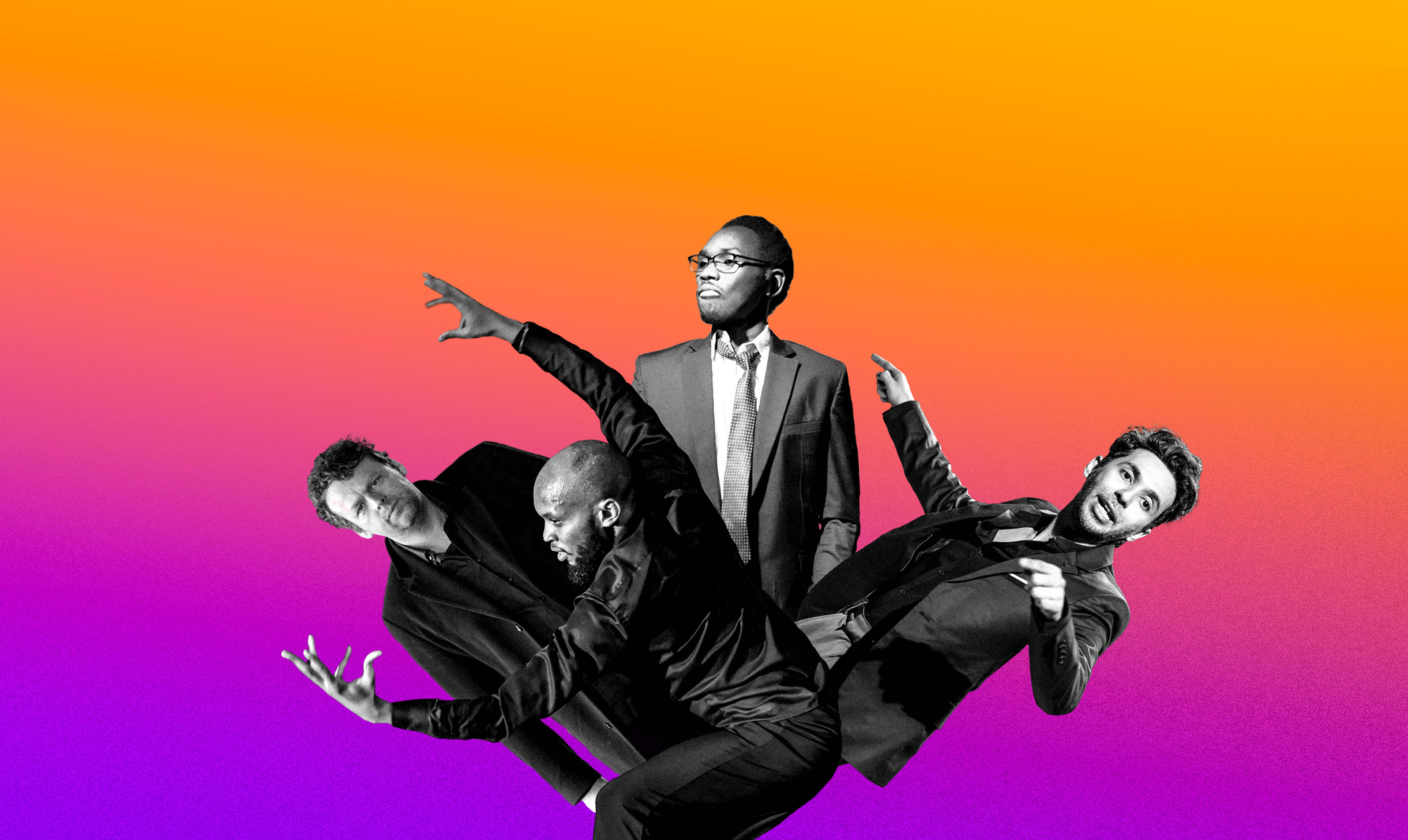A production by Flinn Works in co-production with Amizero Kompagnie, Alif, Bühne Aarau and Sophiensæle Berlin.
TEAM RWANDA Ruzibiza Wesley, Bingo Regis (text), Bingo Regis, Dizy Quan [Ndayishimiye Desiré Arsène] (performance), Dizy Quan [Ndayishimiye Desiré Arsène], Ruzibiza Wesley (choreography), Ruzibiza Wesley (artistic direction, dramaturgy), Bingo Regis (assistant director), King Ngabo (costumes design), Susana Alonso (light design), Andi Otto (sound design)
With the support of Museum Ingabo.
TEAM INDIA Abhay Mahajan (concept, performance), Sharanya Ramprakash (co-concept, co-development & direction), Sridhar Prasad (dramaturgy), Alif (creative producer), Mahati Systla (production assistant), Susana Alonso (light design), Andi Otto (music consultant)
TEAM SWITZERLAND/GERMANY Susana Alonso (light design, technical direction Men in Feminism), Johannes Dullin (performance), Elias Kurth (movement coach), Andi Otto (composition), Shreyan Saraswat (assistant), Lisa Stepf (artistic direction Men in Feminism & performance Oh Man!), Sophia Stepf (artistic direction Men in Feminism & direction Oh Man!), Özge Tuncali (light assistant), Maja Zagórska (artistic collaboration), Marit Buchmeier & Lisanne Grotz / xplus3 Produktionsbüro (production management Men in Feminism)
Funded by the Capital Cultural Fund (HKF). With the friendly support of Goethe-Institut / Max Mueller Bhavan Bangalore and Pune.
Sophiensæle Berlin:
December 11 (premiere) – 13, 2025, 7:00 pm
December 14, 2025, 6:00 pm
